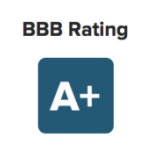When an individual is charged with an offense under the New Jersey Criminal Code, the court has the discretion to set a bail amount. The purpose of bail is not to penalize and individual but rather to ensure his/her appearance in a criminal case. Accordingly, courts are supposed to set bail at that amount that is necessary to provide adequate assurance that they will appear and no more than that amount. Unfortunately, things don’t always work out this way and, when this is the case, our attorneys often establish themselves as a prize for a defendant. We can often successfully reduce bail and/or obtain a more favorable form of bail. This is clearly the norm as opposed to the exception for our lawyers. Our success undoubtedly comes, at least to some degree, from the significant level of experience of those at the firm. At least four (4) of the attorneys possess over twenty (20) years of defense experience and at least three (3) are former prosecutors. We can help you secure the right bail and are available to provide immediate assistance at 908-272-1700. Call our Cranford Office for assistance obtaining bail.
Factors To Be Considered By The Court In Setting Bail
In determining the amount that should be set for bail, the biggest resource for a Judge is the Statewide Bail Schedule that has been adopted by the Administrative Offices of the Courts. A copy of the schedule can be access by clicking here. However, the schedule only sets forth the recommended range such that it is up to the Judge to set the exact bail amount within a particular range. In accordance with State v. Johnson, the court is to consider the following factors in determining the bail amount:
- Seriousness of the crime, likelihood for conviction, and the gravity of the potential punishment the defendant faces;
- Defendant’s criminal record, and past experiences with bail;
- Defendant’s reputation and mental state;
- Amount of time the defendant lived in the community;
- Defendant’s family ties and relationships within the local community;
- Defendant’s employment record and financial status;
- Does the defendant have the resources to flee if so desired; and
- Willingness of community leaders to vouch for the individual
An attorney who is knowledgeable in bail can prove invaluable in obtaining the right bail on a case. This is why it is so important to get the right lawyer involved in your defense as early as possible. Acting swiftly to hire the best law firm you can find can frequently translate into thousands of dollars in savings in terms of both the bail amount and form/type of bail (e.g. ROR or 10% Bail).
Types of Bail Allowable Under New Jersey Law
There are several forms of bail that the court may permit in a given case. The most favorable type is an ROR (i.e. release on your own recognizance). The next best form of bail is one with a ten (10) percent provision. This negates the need to pay the same ten (10) percent to a bail bondsman as a fee for pledging their surety bond. The following is a brief discussion of each type of bail:
- Cash Bail: as the term implies, an individual may only secure release if he/she pays cash into court for the full amount of the bail. A bond is not available in this instance.
- 10% Bail: this form of bail allows an individual to post ten (10) percent of the bail amount into court and secure the defendant’s release. The important thing to keep in mind is that this does not represent a fee but rather secure than is refunded by the court provided the defendant appears on the charges to their conclusion. If the defendant defaults on this bail, however, the full amount that was set is the warrant amount.
- Bondable: when a bail is set as bondable, this means that release can be secured by posting of a surety bond. In order to obtaining such a bond, a bail bondsman must typically be retained. The standard bail bond fee, which is non-refundable, is ten (10) percent of the bail amount.
- Property Bond: when property is permitted in terms of bonding, there must be an appraisal, along with other requirements that must be met (e.g. adequate equity in the property).
Union County Bail Reduction Attorneys, Elizabeth NJ
In most cases, an individual will already be in custody at the Union County Jail, Elizabeth NJ, by the time there is an opportunity to retain a lawyer. The reason is because defendants almost never stay overnight in a local municipal jail and have to be transported to the UCJ if they are not being immediately bailed out and/or released. A bail review is conducted by a Superior Court Judge at the Elizabeth County Court within forty-eight (48) hours of arrival at UCJ. Our attorneys are highly experienced in appearing at bail reviews and in filing formal bail reduction motions if needed. Call us now at 908-272-1700 for assistance securing bail and/or for representation.












